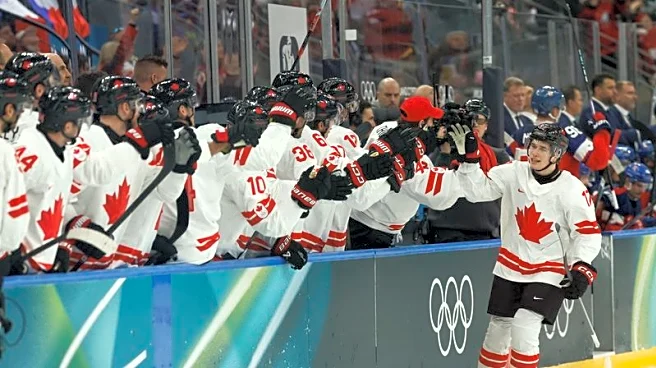What's Happening?
Ace Bailey, a rookie forward for the Utah Jazz, has made a significant business decision by parting ways with his manager, Omar Cooper, and seeking new representation. This move comes after a peculiar draft process where Bailey's representatives reportedly advised a team within the top five picks not to select him, indicating he would not report if chosen. Despite these challenges, Bailey was selected as the No. 5 pick by the Jazz, under the leadership of Austin Ainge, the newly appointed president of basketball operations. Bailey, known for his tough shot-making and fearless demeanor, averaged 17.6 points per game during his time with the Scarlet Knights, showcasing his potential as a valuable asset for the Jazz.
Why It's Important?
Bailey's decision to change representation is crucial as he embarks on his NBA career, aiming to avoid distractions and focus on his development. This move could impact his professional trajectory, as effective management is vital for navigating the complexities of the NBA, including contract negotiations and endorsements. The Utah Jazz, having invested in Bailey as a top-five pick, stand to benefit from his potential if he can maintain focus and leverage his skills effectively. This decision also highlights the importance of player autonomy in managing their careers, which can influence team dynamics and player performance.
What's Next?
With the NBA season approaching, Bailey will need to establish a strong rapport with his new representation to ensure a smooth transition into professional basketball. The Jazz will likely support Bailey in this process, as his success is tied to their investment in him as a high draft pick. Observers will be keen to see how Bailey adapts to the NBA environment and whether his decision to change representation will positively impact his performance and career growth.
Beyond the Headlines
Bailey's situation underscores the broader issue of player agency in professional sports, where athletes increasingly seek control over their career paths. This trend can lead to shifts in how teams approach player management and negotiations, potentially influencing league-wide practices. Additionally, Bailey's decision may inspire other athletes to reassess their representation, prioritizing alignment with their personal and professional goals.










